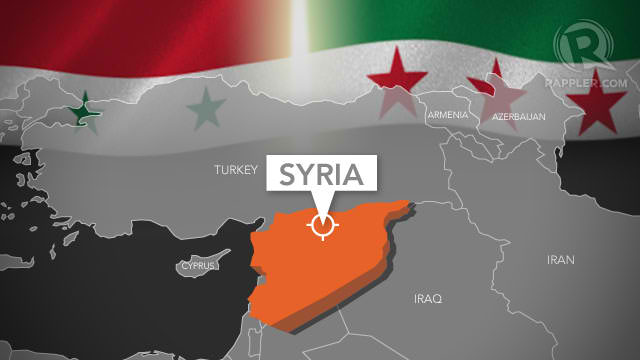SUMMARY
This is AI generated summarization, which may have errors. For context, always refer to the full article.

BEIRUT, Lebanon – The opposition Syrian National Coalition announced a new government this week, after months of delays, facing challenges on the ground from Kurds seeking autonomy and Al-Qaeda groups that reject its authority.
The interim government is under pressure to quickly provide services to citizens living in large swathes of rebel-held territory, particularly in Syria’s north.
But the fractious internal politics of the Coalition, along with the strength of Al-Qaeda-affiliated jihadists on the ground and advances by regime troops all pose key challenges for the new government.
Members of the Coalition acknowledge that the government’s first priority will be to prove itself by offering badly needed public services.
“The primary goal of the government will be to ease the living conditions of citizens living in the liberated areas by providing them with the services they need on the ground,” said Monzer Aqbiq, an advisor to Coalition president Ahmed Jarba.
On Monday, November 11, the Coalition announced the selection of nine ministers, though several posts were left empty after members failed to agree on names.
An interim prime minister, moderate Islamist Ahmed Tomeh, had already been chosen for the post on September 14.
The newly chosen ministers include vice prime minister Iyad Qudsi, defence minister Assad Mustapha, economy and finance minister Ibrahim Miro and telecommunications minister Mohamed Yassin Najjar.
Uthman al-Dawi will be take on the job of local administration and humanitarian aid, Fayez al-Zaher that of justice, Elias Warde energy and Walid al-Zohbi infrastructure and agriculture.
The cabinet includes a single woman, Taghrid al-Hajali, who will take the culture and family portfolio.
The Coalition failed to agree on who would fill the posts of the interior, health and housing ministries.
A government of ‘work, not words’
Speaking in Istanbul on Tuesday, November 12, Tomeh said civil order, security and basic human needs are to be the top priorities in zones under rebel control.
He said his government would be one of “work and not words… and will have as its top priorities establishing security and civil order in the liberated zones of Syria and to respond to vital needs.”
He also confirmed his team’s commitment to the “general policies of the Coalition,” and said his people would work to “activate the role of local councils to administer cities, towns and villages and respond to the needs of citizens.”
He said they would also set up a special agency to provide aid to Palestinian refugees inside Syria and abroad.
The government is coming late to providing services on the ground.
In Kurdish areas, local councils have taken over administration and security, providing several rare spots of quiet and relative normality.
And on Tuesday they announced the formation of their own autonomous regional administration.
Meanwhile, jihadist groups including the Al-Nusra Front and the Islamic State of Iraq and the Levant have been busy for months distributing food and even school supplies.
Groups like the Al-Nusra and ISIL do not recognize the authority of the Coalition, which is based in Turkey.
“The prime minister is in contact with the forces present on the ground and many of them, particularly those who are acting under the flag of the Coalition, have expressed their willingness to cooperate with the government and protect its officials to allow them to supply services to citizens,” Aqbiq said.
“There are terrorist groups like ISIL that are affiliated with Al-Qaeda and refuse to cooperate with the government, which represent a challenge we will have to confront,” he added.
He said the new government would start work immediately and set up offices on the Turkish side of the border with Syria, with the minister “going into Syria whenever it is necessary.”
The war in Syria has devastated much of the country, particularly in areas that are now under rebel control.
Large parts of towns in northern Syria have been destroyed, and with agriculture and means of transportation breaking down, food is scare in some areas.
A UN report put the unemployment figures at 48 percent, with nearly half of children no longer in school and the health system seriously weakened.
The report said more than half of the population was living in poverty, with 4.4 million in “extreme poverty.”
Aqbiq said the new government would seek to raise funds by “restarting the economic machine in the liberated areas, and looking for sourcing of funding from natural resources and border taxes.”
The government has already received some pledges of aid, including from Saudi Arabia, which has promised $300 million, and the Friends of Syria grouping of nations, which pledged $60 million. – Rappler.com
Add a comment
How does this make you feel?
There are no comments yet. Add your comment to start the conversation.